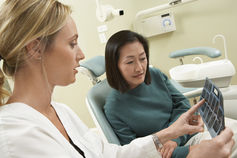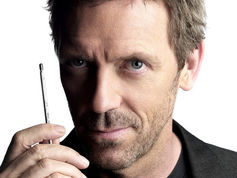A guide to a second medical opinion
By Michael Vagg, Barwon HealthHow many dealers did you visit before you last bought a car?
Were you happy with the first quote you got for a painting job or kitchen renovation?
When it comes to your finances, your house and your belongings, it makes sense to do your research, shop around and make sure you’re getting the best advice.
But it seems few Australians take such a rigorous approach when it comes to their health.
In order to get the best outcome from a second opinion, it’s important to first negotiate the issues of power and autonomy in your relationship with your treating health professional. As a patient, it is your absolute right to seek advice and to be in charge of what happens to your body.
Respect for autonomy is drummed into health professionals, because the power balance in the clinician-patient relationship is generally with the clinician. Too little autonomy, and you will feel like you are being patronised or given no say. You should expect to be treated as a partner and collaborator in the process. And your opinions and preferences should be respected and honoured, regardless of the option you choose to take.
How do doctors respond?
Discussions about loyalty come up repeatedly, and as a pain specialist, I’ve met many patients who are doggedly loyal to their practitioners under any circumstances. Such people usually feel a second opinion is akin to a betrayal or a breach of trust, and wouldn’t think about it unless they had fallen out completely with their treating doctor.GPs can have a relationship with their patients which goes back decades, and in my experience are unlikely to feel that it will be permanently derailed by seeing another clinician. When I did some general practice during my training, the much more experienced GPs used to welcome the chance to have a fresh set of eyes on the problem. They were happy to co-operate and provide you with all the information a second opinion doctor might find useful.
 |
| Getting a second opinion is not akin to a betrayal or a breach of trust. Image from shutterstock.com |
If your first-opinion doctor seems to be like either of the last couple I’ve mentioned - and reacts either poorly or not at all to your request - a second opinion might be exactly what you need.
Why seek a second opinion?
Patients who seek a second opinion do not necessarily think their diagnosis is wrong, nor do they necessarily disagree with the recommended treatment. A recent French study found that having standard practice guidelines which made diagnosis and treatment consistent did not reduce the need for second opinions. Most patients are not just looking for a Dr House to come up with a novel diagnosis or treatment.
The answer is simply communication. Most patients who seek a second opinion do so because they are unhappy with the information they’ve been given about their situation. They may also be unhappy with the way their diagnosis and treatment recommendations were communicated to them; they are seeking a clearer explanation or a doctor they feel a better rapport with.
Clinicians who provide accurate information in a readily understandable form would likely reduce the need for their consumers to seek second opinions.
Tips for getting a second opinion
Every patient story is different but there are some things that make the process of seeking a second opinion a little smoother:1. Let your usual treating health professional know. It will help preserve your longer-term relationship with them and make sure the new one you are seeing can get all the information they need.
2. Be clear in your mind about what the reason for the second opinion is. Are you seeking an opinion, or possibly ongoing care from the new provider? Are you prepared to re-think the current diagnosis or treatment plan if this is recommended? A 2012 Israeli study found that second-opinion clinicians tended to choose treatment with greater intervention if they knew there was a pre-existing, more conservative opinion.
3. Be open with the new health professional that you are seeking a second opinion. This will focus the clinician’s attention on the part of your care that you’re concerned about. There is limited literature about the real-life benefits of second opinions, but if they are mostly being obtained for reasons of communication style and rapport, it would be plausible to assume that you will be more satisfied and do better generally with a clinician you can relate to well.
4. Second opinions may lead to spending more time and effort, especially if you have to travel to another suburb, town or even interstate. Be aware that you may feel more obliged to follow advice you’ve gone to so much effort to obtain. This is also one of the reasons that you should have clear in your own mind what the point of the consultation is. Take your time to consider the second opinion as carefully as you did the first.
5. Don’t consider the internet to be the final word on second opinions. The smartest people in medicine are not the ones writing on blogs and forums or selling their unique patented products. Stick to reliable, trustworthy sites from big institutions, and use this information to get a “background briefing” rather than to make a diagnosis yourself.
Medical diagnosis is an arcane art form, informed by equal parts of education, training, experience and judgement. It’s about having a whole diagnostic strategy for a given problem, including knowing when a negative test is as valuable as a positive one. Often it’s easy; occasionally it’s impossible - and sometimes it doesn’t matter at all.
Michael Vagg does not work for, consult to, own shares in or receive funding from any company or organisation that would benefit from this article, and has no relevant affiliations.
This article was originally published at The Conversation. Read the original article.

Nice blog for our second medical opinion take place to feel ourselves secure.
ReplyDeleteThanks...
medicalopinion
Just chanced upon it today ..though its an old post but still very much relevant to how patient - physician relationship impacts the very decision of taking a second opinion or not. Much more than the diagnosis itself, the way it is communicated makes a big difference. How doctors take the act of a patient going for second opinion is interesting..and its very much true in other societies such as India.
ReplyDeleteWould like to add something on how to take a second opinion though. It was found through research again in Israel that knowledge of first opinion can create a bias in the mind of second opinion provider. It may be hard to conceal the first opinion but its important to do so. In that respect, may be online consultation is better placed, plus not to forget the convenience of not travelling or waiting for your appointment.